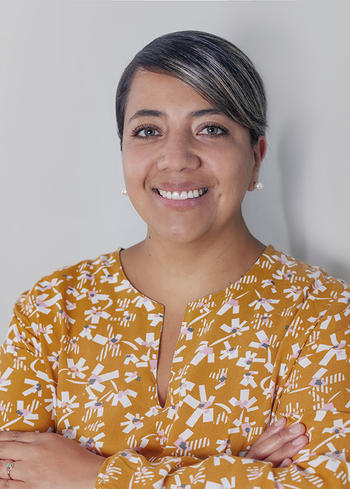Diana Carolina Mignano

Institute of Social and Cultural Anthropology
PhD Candidate (Prof. Dr. Claudia Liebelt)
Research project: Intimate Liaisons of Malagasy Women
14195 Berlin
Person
I am an anthropologist and historian and my work focuses on sexuality, love, economic-sexual exchanges, women, body, emotions, gender and gender relationships in Madagascar.
My current research examines the relationship between love, sexuality, and materiality/corporality in intimate liaisons that Malagasy women establish with foreign men in the context of economic-sexual exchanges in the port and tourist city of Diego Suarez – Madagascar. To this end, the field research focuses on the dynamics of selected relationships that emerge in this context. Here, I address empirically the following questions: In which contexts do these relationships emerge? Who are the participants in these relationships? How do these relationships form and develop? Which elements play a role? How are these relationships experienced, described and characterized by both women and men? Which emotions play a role?
Scientific Career
Since June 2022: Project coordinator at the Department International Office / Student und Career Service at Hof University of applied Sciences.
2020-2021: Project officer for data-based municipal education management with a focus on education monitoring in the education office of the City of Bayreuth.
2018-2019: Head of Information and Library at the Goethe-Institute, Bogotá - Colombia
2013-2018: Junior Fellow at the Bayreuth International Graduate School of African Studies (BIGSAS)
2011-2012: Field research about love, eroticism and corporeal materiality in the context of economic-sexual exchange in Diego Suarez - Madagascar
2007-2010: Master of Arts African Culture and Society
2005-2006: Teacher in Colombian history for the fourth and fifth grade at the school Fundación Gimnasio Campestre, Bogotá – Colombia.
2000-2004: Bachelor in History at the Pontificia Universidad Javeriana Bogotá - Colombia
Part of the research area "Gender, Body, Sexualities"
Research project: Intimate Liaisons of Malagasy Women
This research project explores the relationship between love, sexuality, and materiality/corporality in intimate liaisons that Malagasy women engage in with foreign men in the context of economic-sexual exchanges in the port and tourist city of Diego Suarez.
The Western understanding of prostitution is based on a dichotomous construction of sexuality. Marriage represents a place where sexuality is legitimized, because sexual relationships are based on emotionality as well as love. The "illegitimate" sexuality of prostitution, on the other hand, is based solely on socioeconomic motivations (Rubin 2003). This dichotomy of interpreting prostitution also underlies many African societies. Although the counter genderedindividuals who participate in these relationships develop feelings, ideas, and expectations, a broader understanding of transactional sex is excluded. The aim of my dissertation project is therefore to ethnographically examine and conceptually overcome a one-sided economic or moralizing understanding of prostitution and the dichotomous construction of "legitimate" vs. "illegitimate" sexuality that is linked to it. Theoretical starting points are recent debates on femininity, the body, and sexuality in sub-Saharan Africa (Hunter 2002, Cole 2010, USAAID 2020) and beyond.
To this end, my thesis explores the relationship between love, sexuality, and materiality/corporality in intimate liaisons that Malagasy women engage in with foreign men in the context of economic-sexual exchanges in the port and tourist city of Diego Suarez. Introducing this approach to my ethnographic study of economic-sexual exchange relationships allows for the connection of three new approaches of social anthropological argumentation for the interpretation of this phenomenon:
-
The first approach draws on studies that address questions about the role of concepts of love in marital and extramarital bonds in the African context, illuminating local social practices and understandings of love and their interaction with globalized formats of romantic love (Smith 2001, Cole & Linn 2009, Hunter 2010).
-
The second approach focuses analysis on the agency of female sexuality and how it is used as an empowering resource by women (Tamale 2011, Spronk 2011, Hoffman & Moreno 2016).
-
The third approach addresses how materiality/corporality are mutually dependent and how corporality contributes to the production, reproduction, and transformation of the material world of countergendered persons (Craig 2006, Meiu 2015, Tate 2016, Vartabedian 2016).
My hypothesis is that it is not possibilities of profit or consumption that explain transactional sex or the formation and development of intimate liaisons in Diego Suarez, but rather that it is based on the cultural and social interaction between love, sexuality, and materiality/corporality. The dissertation is grounded in ten months of ethnographic fieldwork in Diego Suarez, Madagascar, employing dense participant observation, informal conversations, ethnographic interviews, biographical methods, and media research.